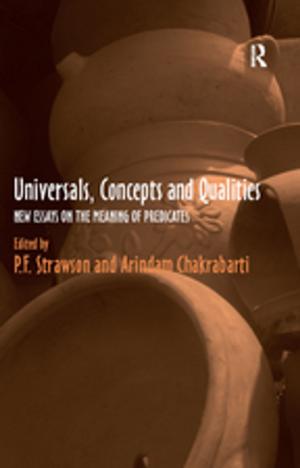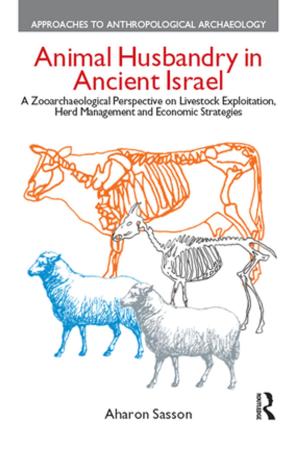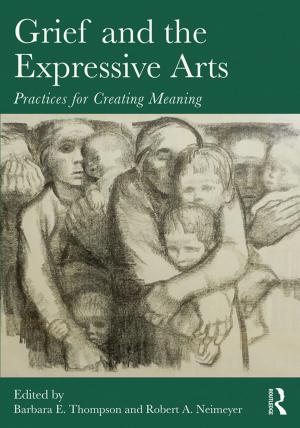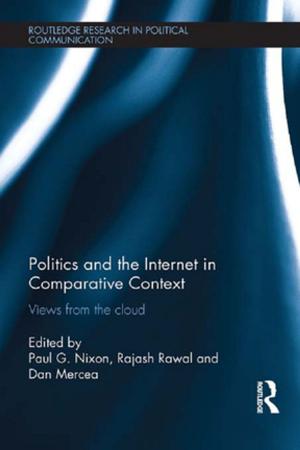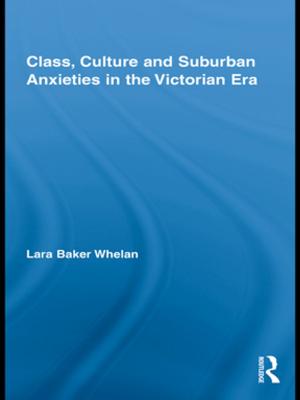Teaching Exceptional Children
Foundations and Best Practices in Inclusive Early Childhood Education Classrooms
Nonfiction, Reference & Language, Education & Teaching, Special Education, Learning Disabled, Elementary| Author: | Mojdeh Bayat | ISBN: | 9781317623854 |
| Publisher: | Taylor and Francis | Publication: | November 10, 2016 |
| Imprint: | Routledge | Language: | English |
| Author: | Mojdeh Bayat |
| ISBN: | 9781317623854 |
| Publisher: | Taylor and Francis |
| Publication: | November 10, 2016 |
| Imprint: | Routledge |
| Language: | English |
Teaching Exceptional Children is an ideal textbook for introductory graduate and undergraduate courses on early childhood special education and teaching in inclusive classrooms. Bayat’s clear and accessible writing, a visually appealing design, and focused pedagogy in each chapter help make it possible to cover a significant amount of material. This powerful text identifies specific behavioral characteristics and presents theoretical information grounded in neuroscience and child development research for a wide range of disabilities. Research-based best practices for effectively working with children with various disabilities in inclusive classrooms are provided in each chapter. The second edition has been fully updated based on the DSM-5, and includes new sections on contemporary issues in inclusion of children with disabilities in early childhood classrooms, such as challenging behaviors, using technology, at-risk children, promoting mental health, and family issues.
A robust pedagogical program, along with online resources for instructors and students, provides full support, including:
- Chapter Objectives and Key Terms help frame each chapter
- Discussion, Critical Thinking, Essay/Short Answer, and Review Questions at the beginning, throughout, and concluding chapters prompt students to fully engage with the material
- Homework/Field Assignments provide opportunities for students to apply their knowledge to real-world situations
- Real-Life Vignettes illustrate concepts in action
- Color Photos, Figures, and Tables clarify concepts in a visually engaging way
- Recommended Resources and References offer guidance for further study
- The companion website, http://routledgetextbooks.com/textbooks/9781138802209**,** includes instructor resources for teaching and planning, including an Instructor's Manual with additional ideas for assigntments and projects, web links, and video links with reflection questions; a test bank; and PowerPoint lecture slides. The site also includes tools for students to engage with and master the concepts and terminology introduced in the book.
Teaching Exceptional Children is an ideal textbook for introductory graduate and undergraduate courses on early childhood special education and teaching in inclusive classrooms. Bayat’s clear and accessible writing, a visually appealing design, and focused pedagogy in each chapter help make it possible to cover a significant amount of material. This powerful text identifies specific behavioral characteristics and presents theoretical information grounded in neuroscience and child development research for a wide range of disabilities. Research-based best practices for effectively working with children with various disabilities in inclusive classrooms are provided in each chapter. The second edition has been fully updated based on the DSM-5, and includes new sections on contemporary issues in inclusion of children with disabilities in early childhood classrooms, such as challenging behaviors, using technology, at-risk children, promoting mental health, and family issues.
A robust pedagogical program, along with online resources for instructors and students, provides full support, including:
- Chapter Objectives and Key Terms help frame each chapter
- Discussion, Critical Thinking, Essay/Short Answer, and Review Questions at the beginning, throughout, and concluding chapters prompt students to fully engage with the material
- Homework/Field Assignments provide opportunities for students to apply their knowledge to real-world situations
- Real-Life Vignettes illustrate concepts in action
- Color Photos, Figures, and Tables clarify concepts in a visually engaging way
- Recommended Resources and References offer guidance for further study
- The companion website, http://routledgetextbooks.com/textbooks/9781138802209**,** includes instructor resources for teaching and planning, including an Instructor's Manual with additional ideas for assigntments and projects, web links, and video links with reflection questions; a test bank; and PowerPoint lecture slides. The site also includes tools for students to engage with and master the concepts and terminology introduced in the book.



